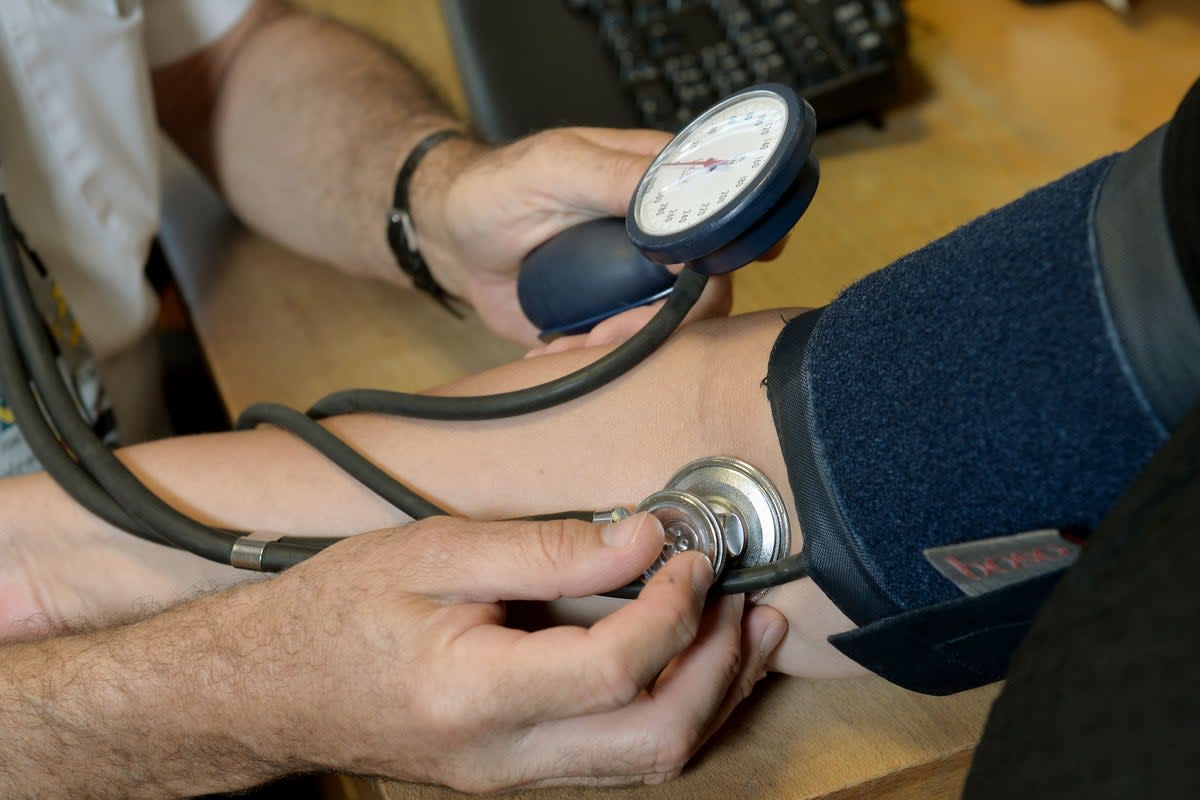London has lowest proportion of face-to-face GP appointments in England

London has the lowest proportion of face-to-face GP appointments, figures revealed on Friday, as a study claimed that seeing a family doctor remotely could be better for certain conditions.
Analysis by the Standard found that under two-thirds (63.6 per cent) of appointments in the capital in July were held in-person – the lowest proportion of any region in the country.
Over a third (34.2 per cent) of appointments in the capital took place on the phone or online, according to the latest NHS figures.
Surgeries in the capital delivered a total of 4,136,307 appointments – a rise of 6.7 per cent in a year. Nearly half (45.7 per cent) took place on the same day, while one in ten patients (10.3 per cent) waited longer than two weeks.
Meanwhile, the overall number of patients in the capital has grown by 188,678 a year as the number of full-time GPs continues to decline.
Professor Kamila Hawthorne, Chair of the Royal College of GPs said the figures demonstrated how many family doctors were experiencing “burnout and low morale from the unsustainable demands they experience year-round”.
“We cannot carry on like this. The government’s recent workforce plan is an opportunity to address some of the most pressing issues, but we now need to see action as an absolute priority, including significant investment for improved retention initiatives to curb the rate at which GPs are leaving the profession, at the same time as encouraging the next generation of GPs into the workforce.”
The figures come as a new study by Imperial College London found that virtual GP consultations could be as effective as face-to-face appointments for certain health conditions.
Researchers found that health outcomes for patients who saw doctors remotely at least matched those for in-person care for mental illness, alcohol misuse, weight management and advice on quitting smoking.
The findings were based on a review of previous research involving more than 5.4 million patients in countries across the world.
The number of virtual GP appointments saw a rapid increase during the Covid pandemic, when face-to-face visits were discouraged due to lockdown restrictions.
While the service has been seen as a way to improve efficiency and access to care, critics have raised a variety of concerns including around confidentiality, data security, the accuracy of diagnosis, patient safety and the potential to widen inequalities for those with limited access to technology or the skills to use it.
Lead study author Dr Ana Luisa Neves, from the School of Public Health at Imperial, said: “Covid-19 caused a huge and rapid expansion in the use of virtual consultations in Primary Care. As part of an emergency response, it wasn’t possible to properly consider the impacts at the time.
"Now, it is really important that we better understand what this immense change means, especially for patient outcomes, safety and equity. Based on the evidence we analysed, it seems that remote care is equally beneficial on health outcomes for certain conditions including mental health, alcohol misuse and smoking cessation. For these conditions, evidence shows patients can get the same effectiveness of care as they would in face-to-face appointments.”
The Imperial group identified 30 studies that compared video- or phone-based primary care consultations with those carried out face-to-face published between 2017 and 2022.
The researchers reviewed the studies, recording whether virtual care was superior, equal to or inferior to face-to-face care on costs, health outcomes, safety, patient satisfaction, waiting times and equity.
They found some evidence that remote consultations reduced financial costs and saved time for doctors, but there was insufficient evidence to enable the researchers to assess the impact of virtual consultations on patient safety.


